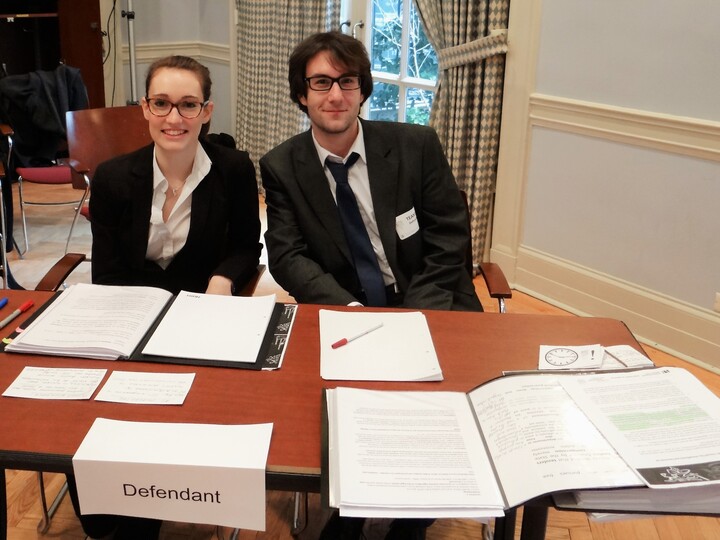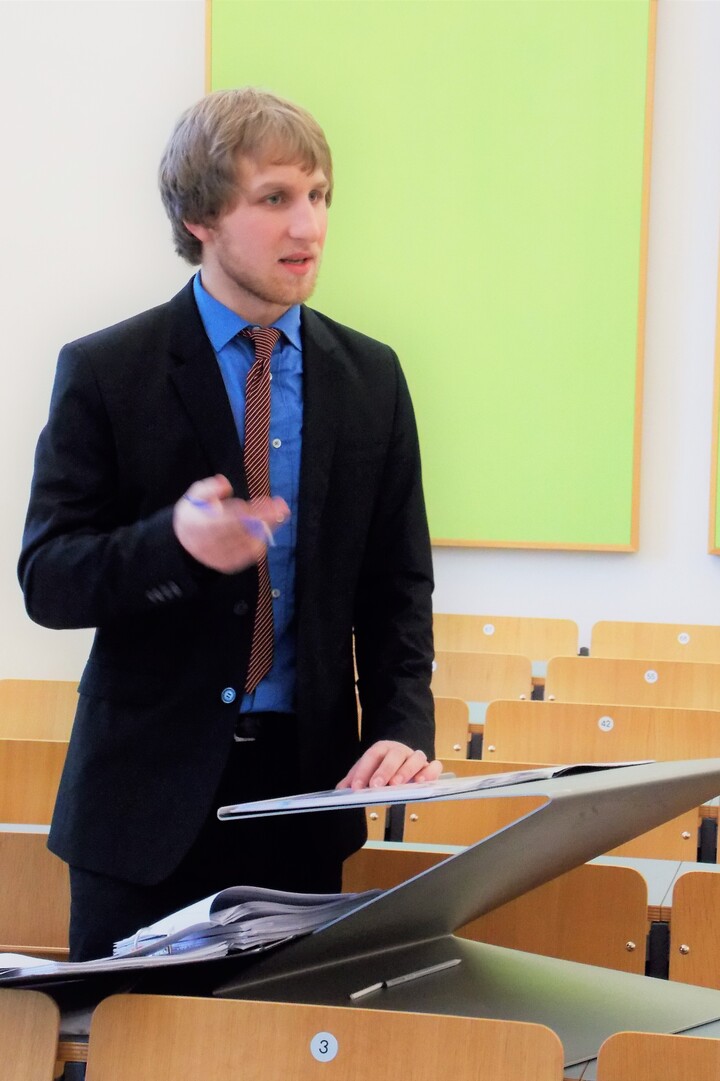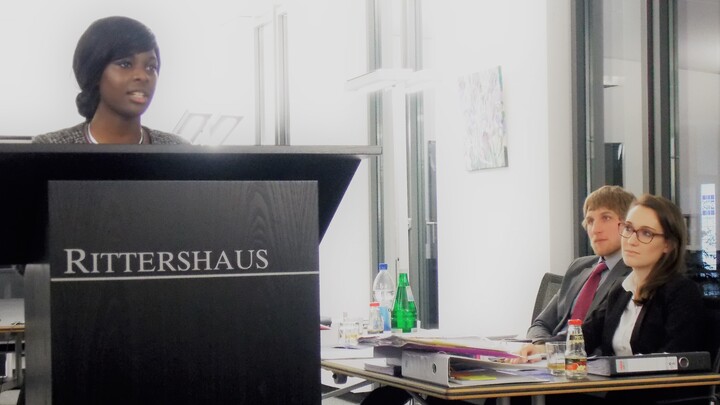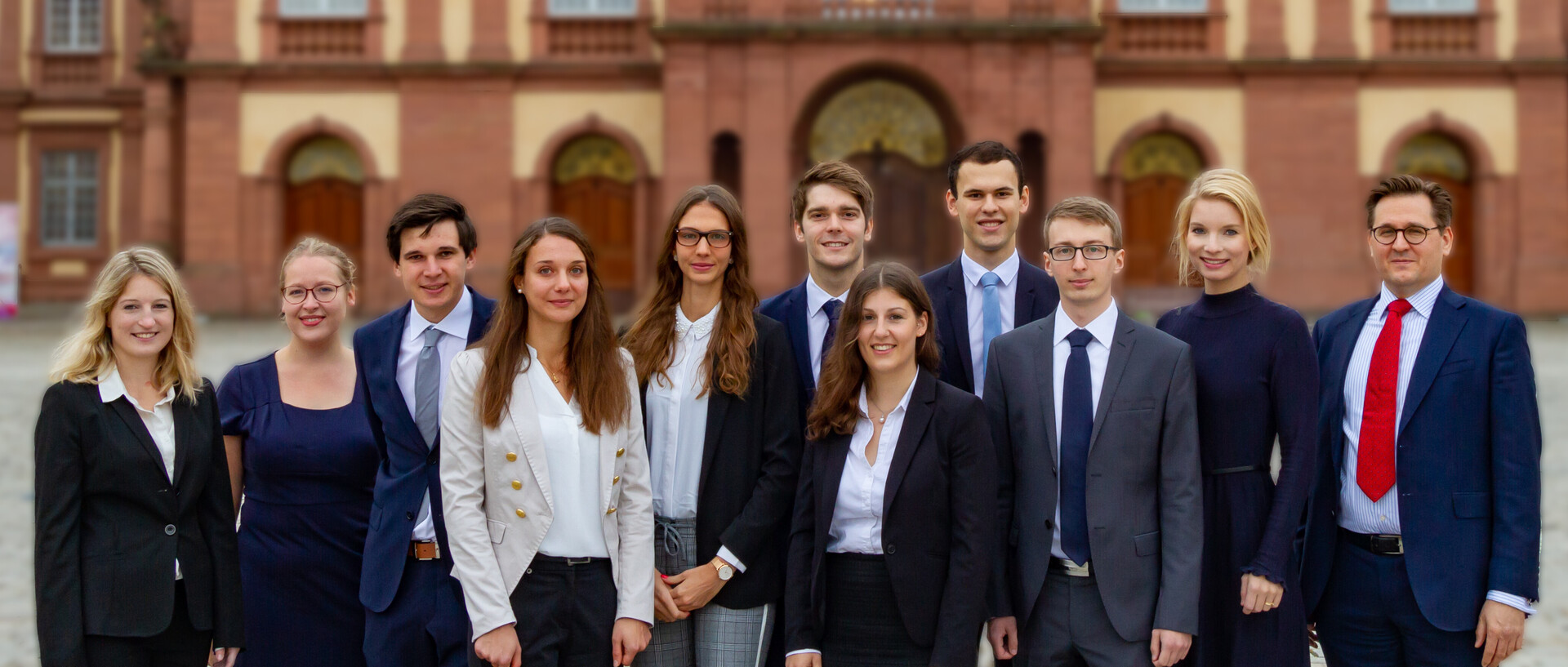Structure of the Moot

The European Law Moot Court (ELMC) is an international and highly renowned competition, in which students from about 100 universities worldwide participate every year. In a simulated trial before the European Court of Justice, the participants work in teams on a fictitious case from the area of European law. The finals take place at the Court of Justice in Luxembourg before its judges and advocates general. The competition is held in English and French. The attendance fees and travel expenses are covered by the chair. According to section 22 subsection 2 sentence 1 number 5 of the Act on Lawyer Training and Examination of the Land of Baden-Württemberg (JAPrO), participants may apply for not counting the semester in which they participate in the ELMC towards the total number of semesters in their program of study.
Why participate?

Participation in the ELMC offers students the opportunity to gain their first work experience as lawyers as well as valuable insights into how the law is applied. By preparing written pleadings and presenting oral arguments, the participants are able to gain in-depth knowledge of European law (that is relevant for their examination) and improve their legal English and French at the same time. Moreover, they learn to speak in a foreign language in front of a jury of experts in a professional and convincing manner and to handle queries with confidence. These are skills you need to become a good lawyer and which will help you to successfully pass the oral examination that is part of the state examination.
By attending the mock trials, the Regional Finals and, potentially, the All European Final, the participants get the chance to make important contacts with employees of the European institutions, judges, attorneys, and law students from all over the world, in line with the competition’s motto: „moot, meet, and compete.“
Participation in the ELMC demands a high level of commitment and passion from all students. At the same time, the ELMC is an unforgettable experience that adds valuable work experience to your resume and is also a lot of fun.
The competition is divided into an oral phase scheduled for September to November and a written phase that starts in January and ends in March or April.
Written phase

In the written phase, it's all about coming up with good arguments. During the first three months of the competition, from September to November, the participants prepare a 15-page written pleading for both the applicant and the defendant based on a fictitious case drawn from the area of European law. The legal analysis of the complex questions, research and evaluation of the English and French sources, as well as presenting arguments convincingly and eloquently in a foreign language challenge the participants’ legal and creative skills and require a high level of personal commitment and good team spirit.
Oral phase

During pleading sessions held at law firms, the team practices for the real thing and meets interesting people. Private photo The 48 best teams of the written phase qualify for the oral phase and can attend one of the four Regional Finals, which take place at different locations all over the world every year. Among the locations chosen for past Regional Finals were, amongst others, Lund, Istanbul, Dublin, Zagreb, and New York. During the Regional Finals, the participants appear before a judge’s bench to compete with eleven other teams in oral proceedings. The group of judges consists of representatives of the commission, members of the Court of Justice, professors, judges, and attorneys. The pleadings are presented in English and French and may be interrupted by queries of the judges at any time. The winners from the Regional Finals qualify for the All European Final before the European Court of Justice (ECJ) in Luxembourg.
The oral proceedings are the most important part of the competition. In order to prepare for the proceedings, the Mannheim team will undergo intensive coaching. Presenting your arguments, speaking in public, using rhetoric, and answering judicial queries with confidence, as well as commenting on the other party’s arguments are skills practiced during the intensive pleading training. This includes recording the training on camera and holding mock trials in renowned law firms, competing against other German and European teams.
Go to the reports from former participants
